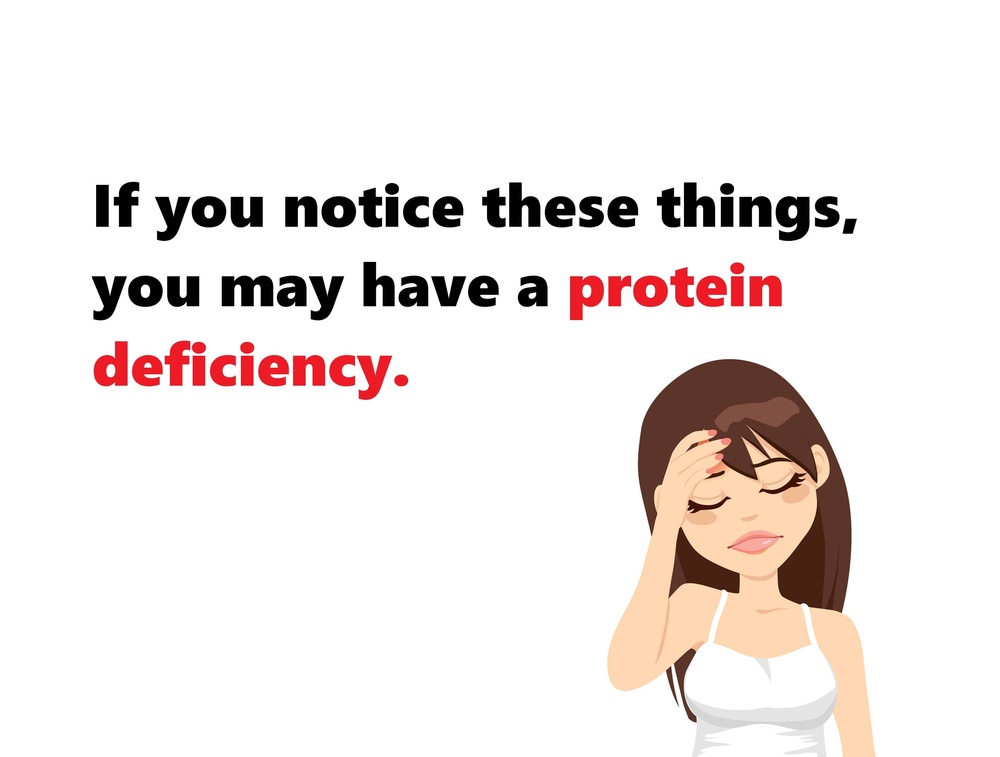11 Signs of Protein Deficiency

There are sources out there that will tell you that eating too much protein is bad for you. Bad for your kidneys, bad for your bones, increases your risk of cancer among other things. This is not the case.
I’m going to share with you 11 signs you are not getting enough protein and that increasing your protein needs to be prioritized. For most people, they are eating far too many carbs and not enough protein to build and repair their tissues. Every single part of your body from your bones to your brain to your muscles and to your kidneys NEED protein. Knowing these signs is going to help you detect if you are protein deficient.
Watch the video below:
So let’s delve into these 11 signs of protein deficiency.
1. Increased muscle loss
A very common sign of protein deficiency is muscle loss or the inability to gain muscle. This is very common in the elderly as they lose their muscle mass due to insufficient protein intake and a lack of weight-bearing exercise.
2. Decreased bone strength
This is very important especially if you’ve been diagnosed with osteopenia or osteoporosis as you are most certainly not eating enough protein in your diet. People have the idea that bone is made of calcium when in fact bone is made up of protein with an atom of calcium stuck in the protein matrix. So if you are not eating enough protein, your body will not be able to keep your bones strong.
3. Decreased wound healing
If you’ve been eating low protein for years you most likely have gotten used to slow wound healing but you may not recognize it as slow as that’s what you are used to.
4. Strange hunger/cravings
Your body is looking for a very short list of nutrients from your diet. It’s looking for amino acids that come from protein, fatty acids that come from fats as well as vitamins and minerals. If you are not getting enough protein in your diet, your body is going to increase your hunger signals and cravings to try to get you to meet these nutrient requirements. Low protein intake can cause this to happen.
5. Brittle hair/nails/skin
If your skin is very dry, flaky and thin, your nails break easily and if your hair is brittle and breaks or you have hair loss for no apparent reason, these are all signs of protein deficiency.
6. Edema/swelling
Edema or swelling in the feet and ankles is an end stage sign that you have been protein deficient for so long that your body is about to give up.
7. Decrease in mood
If you are always down in the dumps or always have a negative mood, this is actually a sign of protein deficiency.
8. Frequent infections
If you have frequent upper respiratory tract infections, frequent bladder or skin infections, this is a sign you are protein deficient. Your body uses protein to heal wounds and fight infections. Your immune system must have adequate protein to do this whether it be bacterial or viral infections is fighting against. If you are not eating enough protein, you are going to have more infections in number AND more severe, long lasting infections.
9. Stunted growth
This is more specific to growing children that if they are not getting enough protein then their growth, in part, will be stunted.
10. Insomnia
In the sleep literature, it is quite well known that a protein deficiency can lead to insomnia. So if you are having difficulty getting to sleep it very well could be a protein deficiency.
Populations who are most at risk for protein deficiency are anyone who follow the standard American (or Canadian) diet, the Canada food guide, the American heart association guidelines or the American diabetes association guidelines.
But populations who are specifically at risk are, firstly, the elderly as their taste buds change as they get older and just don’t have the taste for meat anymore. Secondly, women who are notorious for eating the salad and not the steak especially pregnant and breastfeeding women. They need to go out of there way to make sure they are getting enough protein. Lastly, children due to the stunted growth issue I mentioned earlier. So if you want your child to grow up strong, tall, beautiful and smart, they MUST get enough protein in their diet.
The best sources of protein I recommend are meat, poultry, fish, seafood, eggs, diary including cheese. Basically anything animal-based. What you want to aim for is 1 gram of protein per pound of IDEAL bodyweight or 2 grams of protein per kilogram of IDEAL bodyweight. When I say ideal bodyweight, I mean the weight you desire to be, not your current weight. I recommend obtaining this amount of protein through either a low carb, keto or carnivore diet.
Hopefully this was helpful on 11 signs of protein deficiency and how to steer clear of it.
Happy fat loss,
Tyron